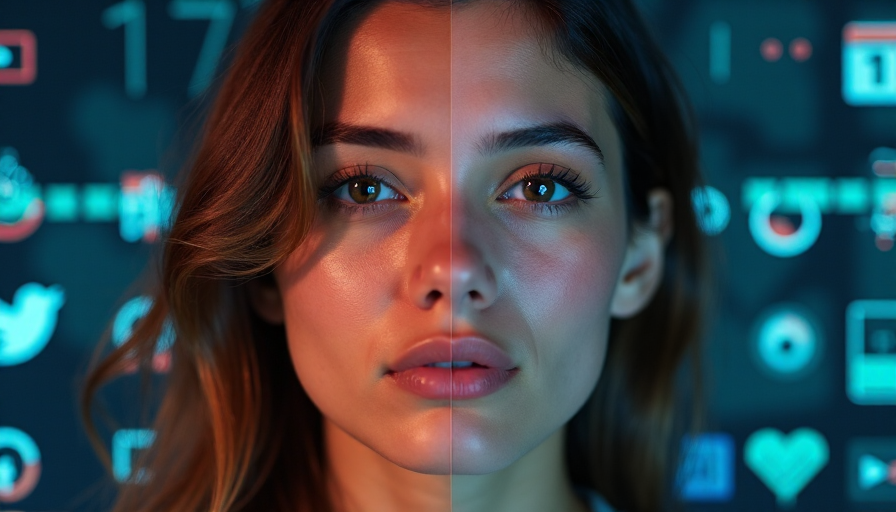
TikTok Eliminates "Chubby Filter" Amidst User Outcry
A controversial filter that artificially enhanced body size, commonly known as the "chubby filter," has been removed from TikTok following intense criticism from its community. The AI tool, which altered images to depict increased weight, ignited a sharp debate over body shaming, toxic diet culture, and the responsibility of social media platforms.
The Controversial Trend
Originally popularized through CapCut—an app under the ByteDance umbrella—the filter quickly went viral. Many users humorously posted side-by-side images of themselves before and after using the effect. However, as lighthearted as some reactions appeared, a significant number of individuals raised serious concerns:
- Body Shaming: Detractors argued that the filter perpetuates negative stereotypes by ridiculing individuals based on appearance.
- Toxic Diet Culture: Experts warned that mimicking weight gain could trigger unhealthy obsessions with diet and exercise, potentially leading to eating disorders.
- Mental Health Risks: Users reported feelings of inadequacy and distress, with some even abandoning the platform as a result.
Voices from the Community
Influential TikTok creator Sadie, with her following of over 66,000, was among many who condemned the filter. She remarked, "It's definitely a step in the right direction," applauding TikTok for removing the tool. Sadie emphasized that social media should be a space for positivity and light-hearted fun, not a place where individuals are demeaned for their physical appearance.
Other users, like Nina from north Wales and Emma from Ayr, shared personal stories of how the filter undermined their body image and contributed to a broader narrative linking self-worth with physical traits. These firsthand accounts illustrate not only an aesthetic issue but also a deep emotional and societal impact.
Expert Insights and Ethical Implications
Dr. Emma Beckett, a respected food and nutrition scientist, criticized the filter as a regression in societal attitudes towards body image. Highlighting a persistent stereotype that frames larger bodies as undesirable and lazy, she warned, "The fear of weight gain contributes to eating disorders and body dissatisfaction. It fuels toxic diet culture, making people obsess over food and exercise in unhealthy ways." Dr. Beckett’s comments underscore how seemingly innocuous features can have far-reaching consequences on mental health and social well-being.
The Role of AI in Social Media Trends
Artificial Intelligence is transforming how users experience social media, with many fun filters available—such as those that transform appearances into playful Lego constructions. However, this incident demonstrates that not all AI enhancements are harmless. A BBC contributor recounted their discomfort after the filter appeared unsolicited on their "For You" page, highlighting the sometimes invasive nature of algorithmic recommendation systems.
The incident also brings attention to the need for more thoughtful oversight when implementing AI tools. With videos using the offensive filter being either reviewed, restricted from recommendations, or blocked from teen accounts, TikTok’s swift action may signal a broader shift towards regulating digital content more responsibly.
Looking Forward
The removal of the "chubby filter" marks an important moment in the ongoing conversation about digital ethics, body image, and the societal impact of emerging technologies. By listening to user feedback and expert insights, platforms like TikTok are beginning to address issues of online harassment and harmful stereotypes.
This episode serves as a reminder that while technology can be a source of fun and creativity, it must also be managed wisely to protect the well-being of its users.
Note: This publication was rewritten using AI. The content was based on the original source linked above.